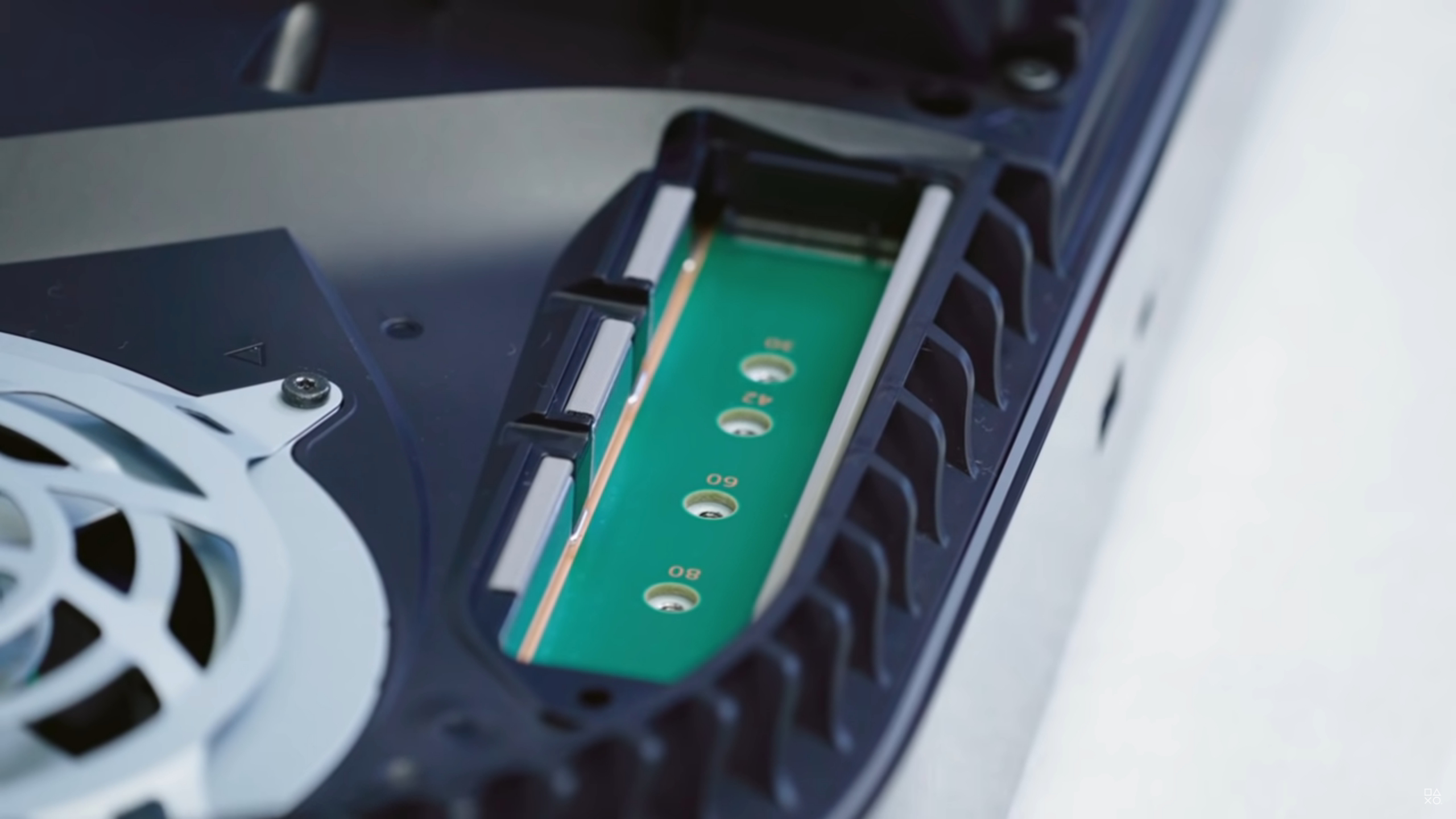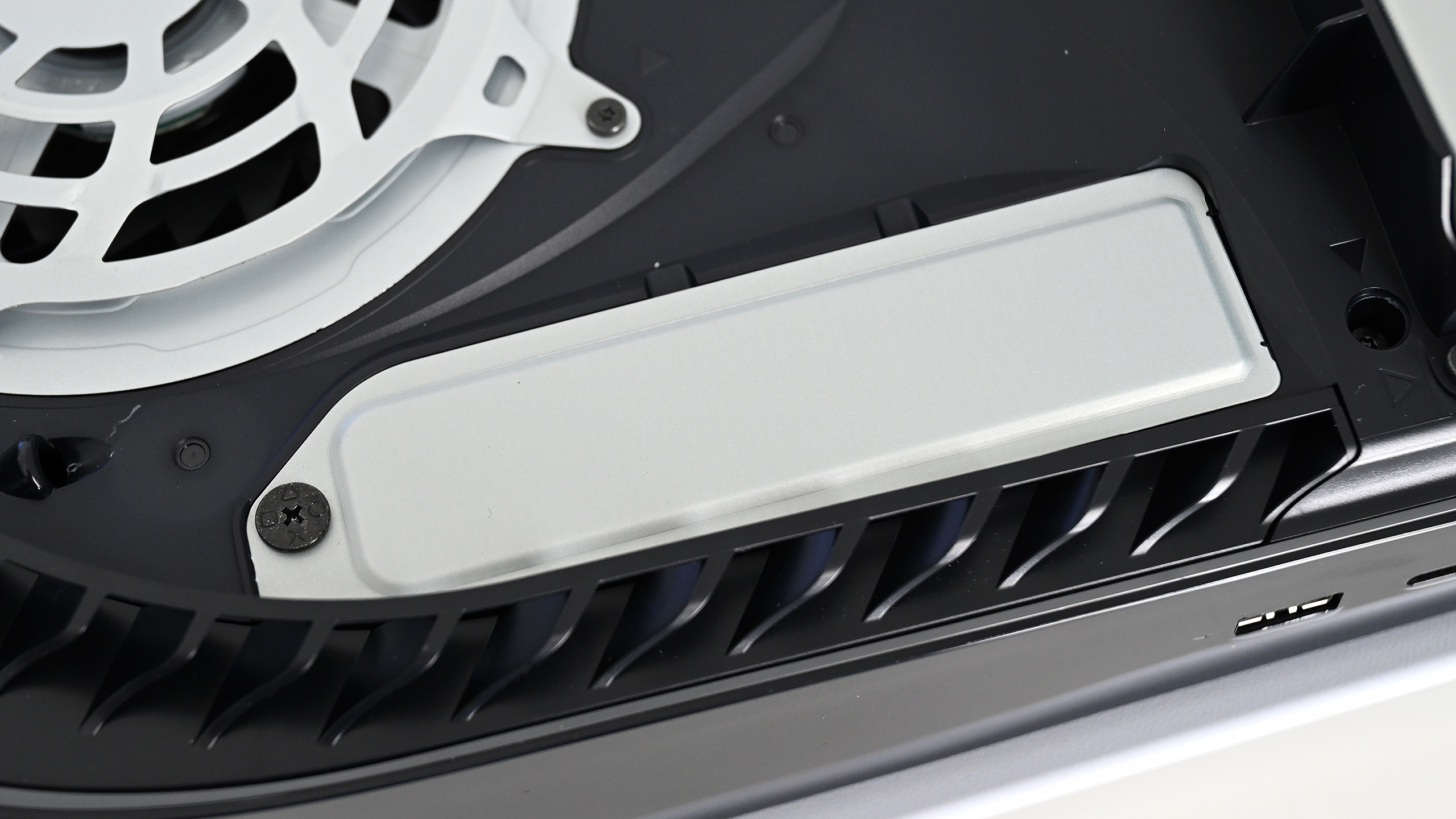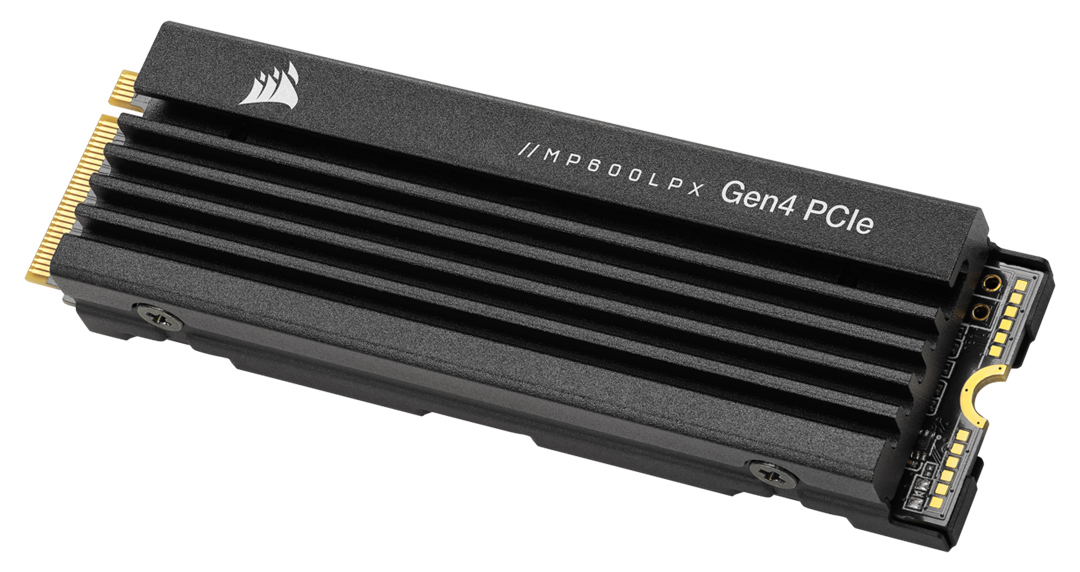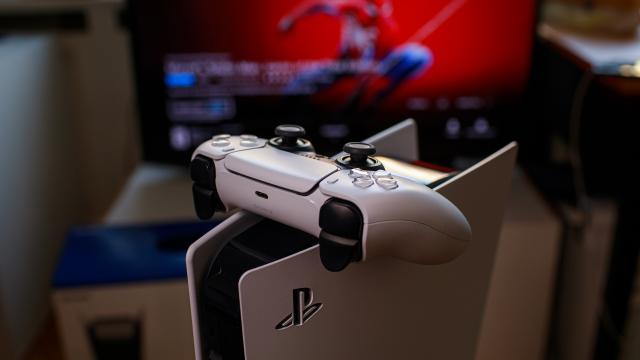While there are a lot of good things you can say about the PlayStation 5, its internal storage capacity leaves a lot to be desired. All up, the PS5 has 825GB of internal storage space, but only 667.2GB is available for game storage. That other 157.8GB is reserved for system files.
How easy is it to fill up your PS5? Let’s take a look at the file sizes of a few popular titles. NBA 2K23 has a file size of around 143GB, Call of Duty: Modern Warfare II is over 150GB and the recently released God of War Ragnarok is 84GB. If you own all three of these games, that’s 377GB of storage, which is just over 55% of the PS5‘s total capacity gone. Even by themselves, NBA 2K23 and CoD: MW2 each take up around 20% of the PS5’s storage.
If you’re currently pushing up against the PS5‘s storage limit and you want to make some room there are a few options available, of course. The easiest and harshest option is that you can just delete your game data to make space.
You also have the option of moving all of your game data on a portable solid state drive. The only catch is that you won’t be able to play any PS5 games stored on this drive and will have to move its data back onto your console. It’s a solution, but also still somewhat of a hassle if you need to move around more game data to reinstall those titles.
There is a way that you can store game data off your PS5’s main drive but still be able to play it whenever you want – you need to install an SSD in the PS5‘s expansion slot.
Here’s everything you need to know about installing an SSD into your PS5, along with a few drives that we recommend picking up.
What are the requirements for NVMe SSDs with the PS5?

- Sequential read speed: Minimum 5500MB/s recommended
- Storage: 250GB to 4TB
- Interface: PCI-Express Gen4x4 supported M.2 NVMe SSD
- Form factor: 2230, 2242, 2260, 2280 or 22110
- Size with heatsink: 30/40/60/80/110mm x 25mm x 11.25mm
- Heatsink size below SSD: 2.45mm
- Heatsink size above SSD: 8mm
Whatever SSD you choose to install will also need a heatsink. You can either use an SSD that comes with a heatsink already built-in, or a heatsink that you’ll need to attach yourself. If you take the latter option, you’ll also need to install a heat transfer sheet.
How to install the SSD into your PS5

- Turn off your PS5 and unplug it. Let it cool down if you’ve recently used it.
- Now place it on a flat surface in a well-lit area. The PlayStation logo should be facing down, while the power button should be on your left and facing away from you.
- Before lifting up the PS5’s cover, make sure you’ve removed any static electricity from your body by touching a metal-grounded object.
- Once you’ve removed the PS5’s outer cover, you’ll notice another smaller, rectangular cover on the inside. This is the expansion slot cover. Remove the screw using a Phillips-head screwdriver and then remove the slot cover.
- Remove the screw and spacer located inside the slot.
- Depending on the size of the SSD you’re installing, line it up with the appropriate groove.
- Before inserting the SSD, place the spacer onto the groove.
- Hold the SSD so it is tilting diagonally away from the PS5. Align its connector edge with the expansion connector, and then firmly insert it.
- Gently tilt the SSD down and then fasten it onto the spacer.
- Reattach the cover of the SSD expansion slot and then slide the PS5’s cover back into place.
- Turn on your PS5 and format the expansion SSD. This will clear any pre-existing data on the drive, so make sure you’ve backed up anything important beforehand if you’ve used it for storage previously.
You can find Sony’s official guide to installing an M.2 SSD here. Our friends over at Kotaku Australia also have a more hands-on explainer that you can watch here:
@kotakuau PS5 upgrade tutorial go #ps5 #upgrade #ps5console #playstation #gaming #games
What SSDs do we recommend?
Seagate FireCuda 530 SSD

- Interface: PCIe Gen4 x4 NVMe 1.4
- Form Factor: M.2 2280-S2
- Read speeds: Up to 7,300MB/s (1TB, 2TB) | 7,000MB/s (500GB)
- Write speeds: Up to 6,900MB/s (2TB) | 6,000MB/s (1TB) | 3,000MB/s (500GB)
- Size: 80.15mm x 22.15mm x 3.58mm
Where to buy the Seagate FireCuda 530 SSD
- 500GB: Amazon Australia ($159.02) | Digidirect ($189.05) | eBay ($160)
- 1TB: Amazon Australia ($234.64) | Digidirect ($369.55)
- 2TB: Amazon Australia ($415.78) | Digidirect ($711.55)
WD Black SN850/SN850X SSD

SN850
- Interface: PCIe Gen4 x4
- Form Factor: M.2 2280
- Read speeds: Up to 7,000MB/s
- Write speeds: Up to 5,100MB/s (2TB) | 5,300MB/s (1TB) | 4,100MB/s (500GB)
- Size: 80mm x 23.40mm x 8.80mm
SN850X
- Interface: PCIe Gen4 16GT/s
- Form Factor: M.2 2280
- Read speeds: Up to 7,300MB/s
- Write speeds: Up to 6,600MB/s (1TB, 2TB) | 6,300MB/s (500GB)
- Size: 80mm x 23.40mm x 8.80mm
Where to buy the WD Black SN850/SN850X SSD
- 500GB (SN850): Amazon Australia ($153.33) | eBay ($190) | Mwave ($167.95)
- 1TB (SN850X): Amazon Australia ($201.03) | eBay ($285.90)
- 2TB (SN850X): Amazon Australia ($330.90) | eBay ($535.90)
Samsung Pro 980 SSD

- Interface: PCIe Gen 4.0 x4, NVMe 1.3c
- Form Factor: M.2 2280
- Read speeds: Up to 7,000MB/S
- Write speeds: Up to 5,000MB/s
- Size: 80mm x 24mm x 8.6mm
Where to buy the Samsung Pro 980 SSD
- 500GB (No heatsink): Amazon Australia ($127) | Mwave ($129)
- 1TB: Mwave ($228) | Samsung ($249)
- 2TB: eBay ($438.90) | Mwave ($438) | Samsung ($429)
Corsair MP600 Pro LPX SSD

- Interface: PCIe Gen 4.0 x4
- Form Factor: M.2 2280
- Read speeds: Up to 7,100MB/S
- Write speeds: Up to 6,800MB/s (2TB) | 5,800MB/s (1TB) | 3,700MB/s (500GB)
- Size: 80 x 23 x 11mm
Where to buy the Corsair MP600 Pro LPX SSD
- 500GB: Amazon Australia ($130.96)
- 1TB: Amazon Australia ($182.93) | eBay ($269)
- 2TB: Amazon Australia ($349.25)
